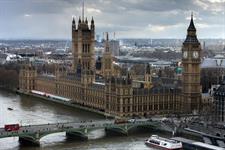Charities and heritage groups have been summoned to a controversial meeting with the culture secretary as part of a move to warn them off attempts to “rewrite” British history.
Several news outlets reported over the weekend that 25 of the UK’s biggest heritage bodies and charities have been invited to a summit where Oliver Dowden is expected to tell them “to defend our culture and history from the noisy minority of activists constantly trying to do Britain down”.
It is being seen as an escalation of the government’s “war on woke” against so-called “cancel culture”, amid concern at senior levels in the government over what it sees as attempts to rewrite Britain’s past.
The National Trust has found itself at the centre of this debate after it published a report that researched its properties’ links to slavery.
The report, published in September last year, showed connections between 93 of its historic places and colonialism and historic slavery.
It sparked fierce debate on social media about the charity’s work, and some publications speculated that it could lead to a “members’ revolt”.
But a request by Third Sector made under the Freedom of Information Act found the Charity Commission had received just three complaints about the trust’s report since its publication.
In response to being invited to the summit with the culture secretary, a National Trust spokesperson said: “The National Trust will be attending the event. We always aim to be transparent and factual about the places we care for and we look forward to the discussion.”
The British Museum and the National Lottery Heritage Fund, which was one of the bodies that provided the National Trust with funding for its research project, have also confirmed their attendance.
Some in the sector took to social media to accuse the government of malpractice and an abuse of power, as others advised organisations to boycott the meeting all together.
Rob Williamson, chief executive of the Community Foundation Tyne & Wear and Northumberland, said: “They don’t have to go. Don’t give this stuff air.”
Jay Kennedy, head of policy and practice at the publishing and training charity the Directory of Social Change, said: “The idea that a fact-based analysis of the central role of slavery and colonialism over the past 500 years of British history and economic development is somehow now being warped by ‘ideology’ or ‘woke activists’ is double-speak and historical malpractice.”
Kristiana Wrixton, head of policy at the charity leaders body Acevo, said: “I struggle to see how politicians telling academics and charities which historical facts and research they can talk about publicly is anything but an abuse of power.”
